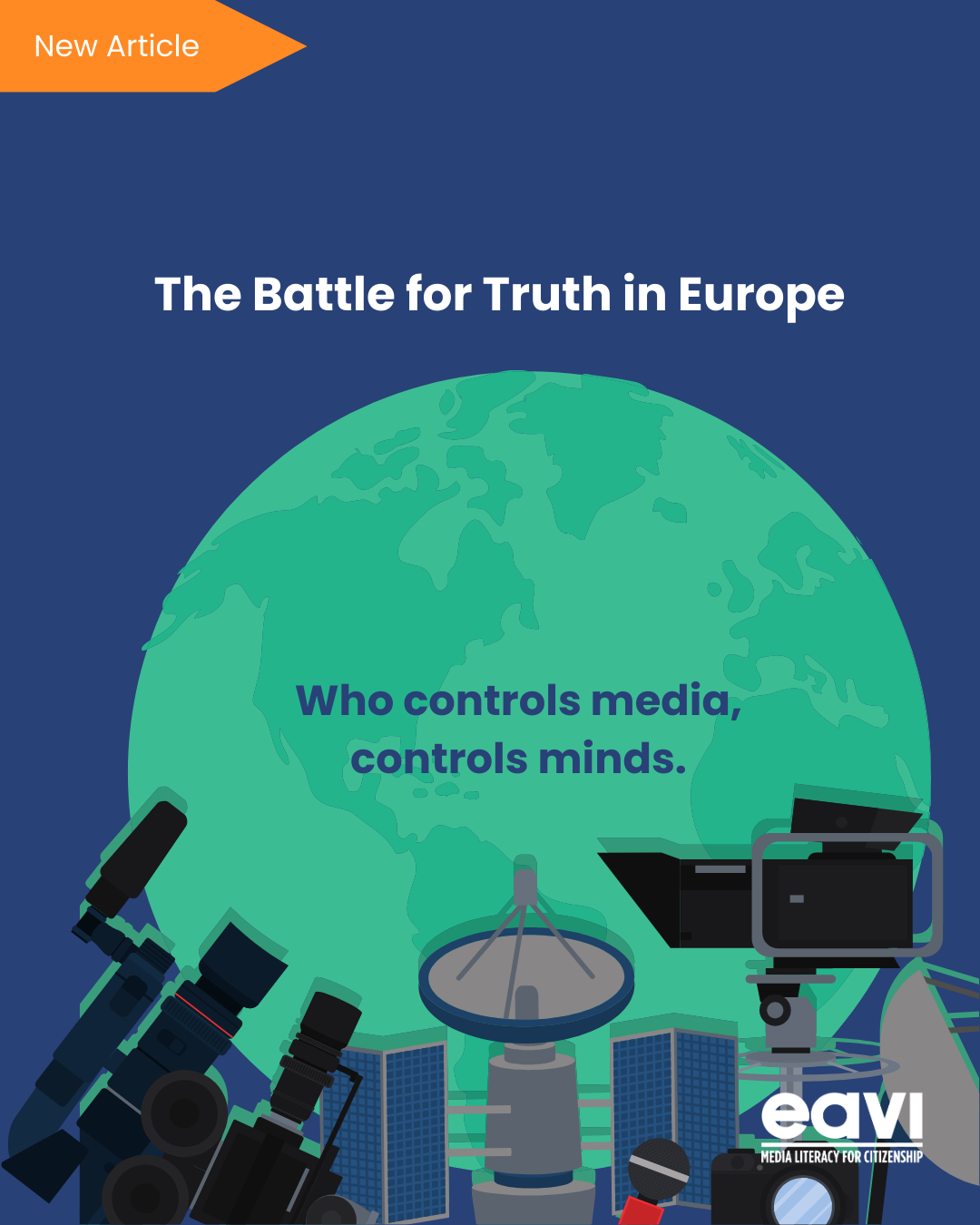
The European Parliament Elections resulted in a significant shift as the extreme right gained substantial ground. With 220 seats, extreme right parties currently make up almost one-third of the parliament, while Greens and Socialist Democrats have lost 18% and 3% of their seats, respectively.
Far-right parties have been persistently targeting younger voters with success. A video that was posted on the social media platform X just a few weeks before the elections, where a group of German youth chanting ‘Germany for Germans, foreigners out!’ went viral. In the Flemish region of Belgium, Flemish youth make up almost 25% of votes of the extreme right, as its parties actively use social media for propaganda. Similarly, the far-right movement gained some traction in France as National Rally’s leader Bardella’s Tiktok use resonated with French youth. Overall, these developments highlight a trend toward the right wing among the youth and how social media is employed as a tool to support this trend.
The contested voting tendencies are primarily protest votes from younger generations due to issues like the high cost of living, housing problems, and immigration rather than an ideological shift. This behaviour could be changed with future regulations. However, media and information quality need to be addressed immediately as they affect democratic practices, particularly in 2024, when we had 64 elections around the globe. Accordingly, the circulation of disinformation, propaganda, and manipulative content on social and conventional media channels has multiplied, affecting the elections, especially with the increasing misuse of AI. The impact of this increase on election integrity should have been considered in the discussions before and after the elections.
Similar issues were also present during the 2019 elections with the disinformation campaign run by the Kremlin through various media outlets. During the Italian elections of that period, thousands of articles containing hoaxes, propaganda, hyper-partisan, and conspiratorial news circulated widely. Also during Brexit, political actors and media outlets, including amplifier accounts and targeted ads, pointed their finger at the EU for issues regarding immigration and the financial crisis the UK was in.
It is concerning how propaganda within various media outlets has fueled these issues. Finally, the 24-year-old YouTuber from Cyprus, with no political experience or education, was elected as a Member of the European Parliament. Referring to himself as a prankster, he was elected due to his influence over his 2.6 million followers, who provided him with the third-largest number of votes. This example serves as a reminder of the significance of media’s influence on elections and voting behaviour and, therefore, the necessity of media literacy. EU institutions, recognising the threat of disinformation and misuse of social media and AI, have taken several measures to combat them. These include the European Media Freedom Act, Digital Networks Act (DNA), and Digital Services Act (DSA). The EU should consider further action to uphold the quality of media and information as well as the influence media has over citizens, as it is a priority to sustain electoral integrity.
Ultimately, the rise of the extreme right and the misuse of media have significant implications for the future of the EU, particularly regarding policy-making and protecting democratic values. As digital media continues to impact, influence, and manipulate voter behaviour, the need for media literacy skills becomes increasingly important. It is crucial for the future and underscores the necessity for media literacy to be actively taught, empowering citizens to make well-informed decisions about their future and that of their country.
–
References:
The Brussels Times. “Vlaams Belang Polling at 25% among Flemish Young People.“

The European Parliament Elections resulted in a significant shift as the extreme right gained substantial ground. With 220 seats, extreme right parties currently make up almost one-third of the parliament, while Greens and Socialist Democrats have lost 18% and 3% of their seats, respectively.
Far-right parties have been persistently targeting younger voters with success. A video that was posted on the social media platform X just a few weeks before the elections, where a group of German youth chanting ‘Germany for Germans, foreigners out!’ went viral. In the Flemish region of Belgium, Flemish youth make up almost 25% of votes of the extreme right, as its parties actively use social media for propaganda. Similarly, the far-right movement gained some traction in France as National Rally’s leader Bardella’s Tiktok use resonated with French youth. Overall, these developments highlight a trend toward the right wing among the youth and how social media is employed as a tool to support this trend.
The contested voting tendencies are primarily protest votes from younger generations due to issues like the high cost of living, housing problems, and immigration rather than an ideological shift. This behaviour could be changed with future regulations. However, media and information quality need to be addressed immediately as they affect democratic practices, particularly in 2024, when we had 64 elections around the globe. Accordingly, the circulation of disinformation, propaganda, and manipulative content on social and conventional media channels has multiplied, affecting the elections, especially with the increasing misuse of AI. The impact of this increase on election integrity should have been considered in the discussions before and after the elections.
Similar issues were also present during the 2019 elections with the disinformation campaign run by the Kremlin through various media outlets. During the Italian elections of that period, thousands of articles containing hoaxes, propaganda, hyper-partisan, and conspiratorial news circulated widely. Also during Brexit, political actors and media outlets, including amplifier accounts and targeted ads, pointed their finger at the EU for issues regarding immigration and the financial crisis the UK was in.
It is concerning how propaganda within various media outlets has fueled these issues. Finally, the 24-year-old YouTuber from Cyprus, with no political experience or education, was elected as a Member of the European Parliament. Referring to himself as a prankster, he was elected due to his influence over his 2.6 million followers, who provided him with the third-largest number of votes. This example serves as a reminder of the significance of media’s influence on elections and voting behaviour and, therefore, the necessity of media literacy. EU institutions, recognising the threat of disinformation and misuse of social media and AI, have taken several measures to combat them. These include the European Media Freedom Act, Digital Networks Act (DNA), and Digital Services Act (DSA). The EU should consider further action to uphold the quality of media and information as well as the influence media has over citizens, as it is a priority to sustain electoral integrity.
Ultimately, the rise of the extreme right and the misuse of media have significant implications for the future of the EU, particularly regarding policy-making and protecting democratic values. As digital media continues to impact, influence, and manipulate voter behaviour, the need for media literacy skills becomes increasingly important. It is crucial for the future and underscores the necessity for media literacy to be actively taught, empowering citizens to make well-informed decisions about their future and that of their country.
–
References:
The Brussels Times. “Vlaams Belang Polling at 25% among Flemish Young People.“

The European Parliament Elections resulted in a significant shift as the extreme right gained substantial ground. With 220 seats, extreme right parties currently make up almost one-third of the parliament, while Greens and Socialist Democrats have lost 18% and 3% of their seats, respectively.
Far-right parties have been persistently targeting younger voters with success. A video that was posted on the social media platform X just a few weeks before the elections, where a group of German youth chanting ‘Germany for Germans, foreigners out!’ went viral. In the Flemish region of Belgium, Flemish youth make up almost 25% of votes of the extreme right, as its parties actively use social media for propaganda. Similarly, the far-right movement gained some traction in France as National Rally’s leader Bardella’s Tiktok use resonated with French youth. Overall, these developments highlight a trend toward the right wing among the youth and how social media is employed as a tool to support this trend.
The contested voting tendencies are primarily protest votes from younger generations due to issues like the high cost of living, housing problems, and immigration rather than an ideological shift. This behaviour could be changed with future regulations. However, media and information quality need to be addressed immediately as they affect democratic practices, particularly in 2024, when we had 64 elections around the globe. Accordingly, the circulation of disinformation, propaganda, and manipulative content on social and conventional media channels has multiplied, affecting the elections, especially with the increasing misuse of AI. The impact of this increase on election integrity should have been considered in the discussions before and after the elections.
Similar issues were also present during the 2019 elections with the disinformation campaign run by the Kremlin through various media outlets. During the Italian elections of that period, thousands of articles containing hoaxes, propaganda, hyper-partisan, and conspiratorial news circulated widely. Also during Brexit, political actors and media outlets, including amplifier accounts and targeted ads, pointed their finger at the EU for issues regarding immigration and the financial crisis the UK was in.
It is concerning how propaganda within various media outlets has fueled these issues. Finally, the 24-year-old YouTuber from Cyprus, with no political experience or education, was elected as a Member of the European Parliament. Referring to himself as a prankster, he was elected due to his influence over his 2.6 million followers, who provided him with the third-largest number of votes. This example serves as a reminder of the significance of media’s influence on elections and voting behaviour and, therefore, the necessity of media literacy. EU institutions, recognising the threat of disinformation and misuse of social media and AI, have taken several measures to combat them. These include the European Media Freedom Act, Digital Networks Act (DNA), and Digital Services Act (DSA). The EU should consider further action to uphold the quality of media and information as well as the influence media has over citizens, as it is a priority to sustain electoral integrity.
Ultimately, the rise of the extreme right and the misuse of media have significant implications for the future of the EU, particularly regarding policy-making and protecting democratic values. As digital media continues to impact, influence, and manipulate voter behaviour, the need for media literacy skills becomes increasingly important. It is crucial for the future and underscores the necessity for media literacy to be actively taught, empowering citizens to make well-informed decisions about their future and that of their country.
–
References:
The Brussels Times. “Vlaams Belang Polling at 25% among Flemish Young People.“








































































































































































